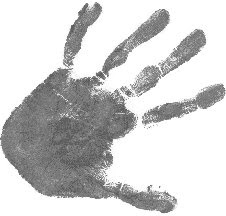The friend of my enemy is my enemy – even if it’s Lincoln.
Well, that’s a bit of an overstatement, but in light of Bambi’s fawning over Lincoln (and ipso facto, the MSM), let’s remind them all of just what Lincoln meant by “freeing the slaves” in the Emancipation Proclamation. I am always surprised that my students (even at the Master's level) have never read it.
Let’s start with a circa 1857 map of slave states (h/t Son of the South blog):
The Red States were “Slave Importing States” and the Pink States were “Slave Exporting States.” Slave trade is, no matter the direction, slave trade. So the pink states are just as culpable as the red states.
Because of the words of the Emancipation Proclamation, which we’ll visit in a little bit, let’s focus on a few states: Delaware, Maryland, Kentucky, and Missouri. We’ll add the District of Columbia.
Here are the numbers of slaves in those locations according to the 1860 Census: Delaware – 1,798; WDC – 3,185; Kentucky – 225,483; Maryland – 87,189; and Missouri – 114,931.
That’s a total of 432,586 slaves, representing almost 11% of the entire slave population in the United States at that time.
The Emancipation Proclamation was a two-step dance. Lincoln issued a preliminary version meant as a warning shot. Here’s the operative part of us:
That on the first day of January in the year of our Lord, one thousand eight hundred and sixty-three, all persons held as slaves within any State, or designated part of a State, the people whereof shall then be in rebellion against the United States shall be then, thenceforward, and forever free; and the executive government of the United States, including the military and naval authority thereof, will recognize and maintain the freedom of such persons, and will do no act or acts to repress such persons, or any of them, in any efforts they may make for their actual freedom. [Emphasis added]Did you see that? He wrote by implication that if a state was not “in rebellion against the United States” then the right to have slaves would not be curtailed. That is where Delaware, WDC, Maryland, Kentucky, and Missouri come in.
Let’s be fair, however, to Abe. Maybe he was doing all he felt that he could do. About a year and a half later, in March 1864, he wrote his personal feelings: I am naturally anti-slavery. If slavery is not wrong, nothing is wrong. I can not remember when I did not so think, and feel. And yet I have never understood that the Presidency conferred upon me an unrestricted right to act officially upon this judgment and feeling.
In the final Proclamation, Lincoln sets out the “freedom of slaves” jurisdictions with specificity:
Now, therefore I, Abraham Lincoln, President of the United States, by virtue of the power in me vested as Commander-in-Chief, of the Army and Navy of the United States in time of actual armed rebellion against the authority and government of the United States, and as a fit and necessary war measure for suppressing said rebellion, do, on this first day of January, in the year of our Lord one thousand eight hundred and sixty-three, and in accordance with my purpose so to do publicly proclaimed for the full period of one hundred days, from the day first above mentioned, order and designate as the States and parts of States wherein the people thereof respectively, are this day in rebellion against the United States, the following, to wit:The Proclamations were issues in late 1862 and early 1863. His personal thoughts were written as late as March 1864.
Arkansas, Texas, Louisiana, (except the Parishes of St. Bernard, Plaquemines, Jefferson, St. John, St. Charles, St. James Ascension, Assumption, Terrebonne, Lafourche, St. Mary, St. Martin, and Orleans, including the City of New Orleans) Mississippi, Alabama, Florida, Georgia, South Carolina, North Carolina, and Virginia, (except the forty-eight counties designated as West Virginia, and also the counties of Berkley, Accomac, Northampton, Elizabeth City, York, Princess Ann, and Norfolk, including the cities of Norfolk and Portsmouth[)], and which excepted parts, are for the present, left precisely as if this proclamation were not issued.
And by virtue of the power, and for the purpose aforesaid, I do order and declare that all persons held as slaves within said designated States, and parts of States, are, and henceforward shall be free; and that the Executive government of the United States, including the military and naval authorities thereof, will recognize and maintain the freedom of said persons.
If he felt that he could exercise presidential power to free the slaves in rebellious states, it seems to follow that he made an equal political calculation to stay silent on those states that were a part of the Union. Freeing those slaves, perhaps he felt, could have resulted in additional states rebelling.
Politics is full of compromises. That is it’s most repugnant quality.














Ever since the 1970's I have heard black radicals complain about Lincoln, and how he only published the emancipation proclamation as a way of punishing the secessionist states. The reality is that the greater the power, the greater the consequences of exercizing that power.
ReplyDeletegreat history lesson. I loved reading it. Thanks.
ReplyDelete-Robert-
appreciate it. i think that if lincoln could have had his way, he would have abolished slavery throughout the US. but political times would not allow it. must have been hard morally on him.
ReplyDelete